Jan 27, 2020 | wedding planning

When you’re getting married in the Forest Preserve, you definitely have to think about insects. Photo by Allison Williams Photography.
Let’s say you’re planning your dream eco-friendly wedding, and you want to have it outdoors. At some point in the process you are going to realize that, if it’s summertime, you are going to be inviting all the local mosquitoes to the buffet–of your guests! No one wants to expose their guests to a zillion mosquito bites (much less ticks), but if you really want your event to be environmentally friendly, do you want to spray insecticide? It’s a dilemma. Fortunately, there are some things you can do that are less toxic and less destructive than calling the local bug spraying service or dousing the place in a toxic yard spray.
The first thing you can do is to warn your guests that there will likely be insects, and that if they want to avoid being bitten, they should remember to use their own repellent. The next thing–which is more hospitable–is to provide insect repellent and a place (away from the food, please!) where people can use it. If you want to provide non-toxic and effective repellents to your guests, try some of the products that contain oil of lemon eucalyptus (different from lemon eucalyptus oil) or picardin. (I learned a lot about these products from reading a Consumer Reports article on the subject. WebMD also has some useful information.)
Beyond personal repellents, there are other things you can do. If you have access to electricity, you can have large fans blowing in your guest area. Mosquitoes (but not ticks) are generally deterred by strong air currents. Most tent rental companies will also rent fans and the generators to run them. (Unfortunately, clean energy generators are not a big business for weddings and smaller events yet, but it may be possible if you have the time and money to devote to making it happen.)
There are also non-toxic products you can spread on the ground to repel mosquitoes, like these granules from Bonide. This product gets good online reviews, but I have not seen any scientific articles reviewing its effectiveness. My guess is that it probably works for a while, but may need to be re-applied periodically. It also is not marketed to repel ticks, so personal insect repellents are still probably your best bet if you know they are in the area.
As a last resort, you can use some of the insecticides (permethrin and pyrethrin products) that are approved for organic farm use and sold for general consumer use. They are still toxic but are less destructive to beneficial insects when they are sprayed after sunset than some other options. They are also human neurotoxins, so if you are concerned about that, they may not be an option.
While insects are a nuisance when you’re planning an outdoor event, there’s no reason why you have to kill them or poison the environment in order to have a comfortable time with your guests.
Jan 13, 2020 | wedding planning
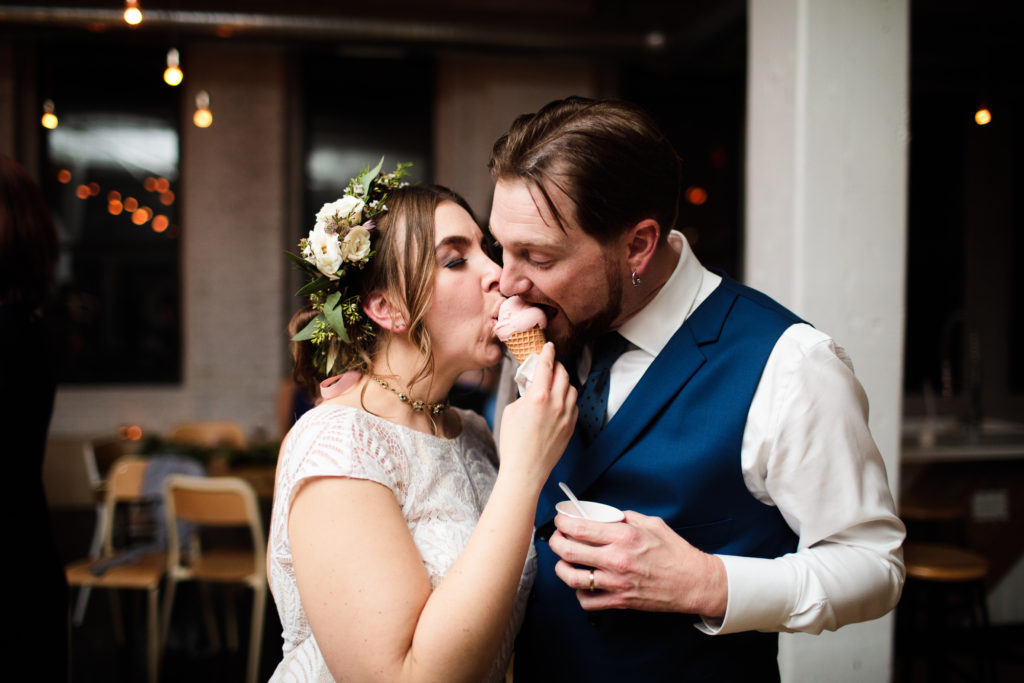
A match made in heaven! Photo by Azuree Wiitala, www.xoazuree.com.
I’m in the matchmaking business. No, I don’t mean finding marriage partners for my clients. They are on their own for that part! But once they hire me to help plan their wedding (or other event), then I often have to do some serious matchmaking–between them and the right vendors.
Every time I meet with one of my clients, not only am I paying attention to the specific problem or puzzle we are working on that day (budget, schedule, decor, whatever), but I am also listening to how they talk about themselves, each other, and their interests. These are all clues I can use to find the right people for them to work with.
Because having the right vendors for your wedding is the key to things turning out the way you want them to. If your florist doesn’t quite get your vision or you find your photographer abrasive, already things are not going the right way. There has to be good communication between client and vendor, and often that means having a similar point of view or something else in common.
And I love it when the match turns out to be a good one. When I client emails and says, “That florist you recommended is so wonderful!” then I know I got it right. Or when I get a call from a vendor saying, “Thanks for the recommendation to your client. We had a meeting and we had so much in common.” Those are the things I like to hear.
And it’s not just that I know a whole lot of wonderful people in this business. I really do. But there’s one more step to the process you can’t see: I’m doing matchmaking in my head to be sure that the right people are working together.
Jan 6, 2020 | wedding planning
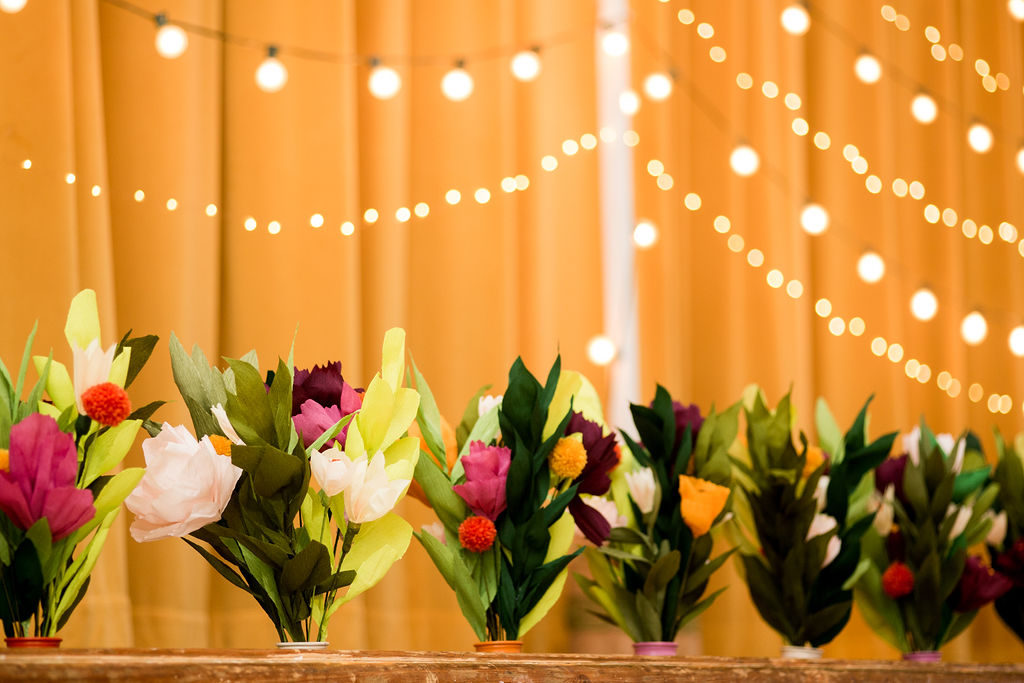
Really, it will all be fine! Photo by Beth Weiler Photography.
Here are some thoughts for those of you who are just starting to plan your wedding (and even for those who are well on their way). This is about one of the biggest pitfalls you may encounter as you plan, especially if you already have perfectionist tendencies. It’s about the wedding industry’s unreasonable love affair with the word “perfect.” This is my down-to-earth advice about the idea of a “perfect” wedding:
You don’t have to be perfect in order to get married. Especially if you’re a woman, remember that you don’t have to be perfect in order to Be A Bride. (The wedding industry really goes after women on the perfectionism thing.) If you’re a man or non-binary, you don’t have to be perfect, either. You just have to be yourself.
You don’t have to try to be someone else in order to get married, either. Your spouse-to-be wants to marry your authentic self. Your friends and family will be there because they love you as you are. You can be any version of yourself you want, but remember that you are good enough to get married.
Your wedding will be perfect in its own way, even if it is not exactly what you had envisioned. Chances are, it will be better than you thought possible (assuming you have planned halfway well), especially if you let things happen the way they happen and don’t try to control everything.
I want you to know that all this advice is coming from someone who truly understands perfectionism and control issues. I know all about it, and much more. And I know that it is possible to let go, and that it can be a good idea to do so. (It also helps if you have a person you trust running things so you can let go.)
Think about it this way: If you are going to stay married to the same person for the long haul, you are going to learn that there are things you just can’t control. (Trust me on this one!) Start practicing now to let go of the little things as you plan your wedding.
Plan well and think things through. Hire people you can trust to make things go smoothly. Have back-up plans in place. Then, hand it all over to the person who is coordinating the day for you, and let it go. As long as you end up married to the right person at the end of the day, it will be a smashing success!
Dec 16, 2019 | wedding planning
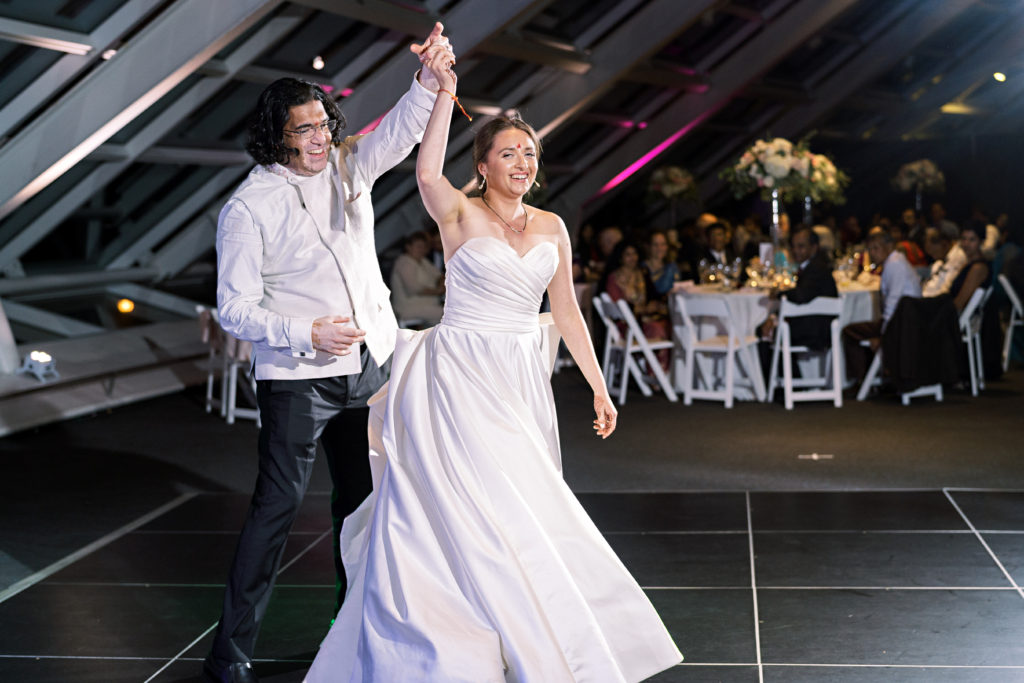
Enthusiastic dancers doing their First Dance. Photo by Ryan Timm Photography.
There are a lot of wedding traditions of uncertain origin and venerability. Chief among these is the wedding couple’s First Dance. Most of the internet seems to think that this tradition is a descendant of the days when the guest of honor at a ball would open the dance floor by doing the first dance. (There are contrary opinions, as well, though.) A more important question, though, is this: If you’re getting married, should you do a First Dance with your new spouse?
While the answer to this question is always going to be a personal one, here are a few things to consider:
First, do you and your future spouse like to dance? Have you been dancing together already? If your answer to both of these questions is a resounding, “No!” then I’m here to remind you that wedding traditions are always optional, and you’ll still be legally married if you don’t do a First Dance. And your family’s Keeper of the Traditions will get over it.
But let’s say you do like to dance together. Here’s a second question for you: Are you both comfortable dancing with each other in front of 50-200 of your closest friends and relatives for 2 or 3 minutes? If yes, then maybe you’d love to include this tradition in your wedding reception. If not, there are other options. One thing I’ve seen pretty frequently at weddings where the couple aren’t big dancers is the DJ inviting the wedding party onto the dance floor after about a minute of the First Dance. That’s one way to keep the tradition, but also keep it from being uncomfortable.
Sometimes one half of the couple is an enthusiastic and skilled dancer and the other half is less so. Or one person feels strongly about the tradition and the other one isn’t comfortable dancing in the spotlight. If this sounds like you, then remember that this question can be a testing ground for developing negotiation and compromise skills between the two of you. What can you do that will make both of you happy? There are lots of different ways to answer that question.
One option that can help is dance lessons. Having a few dance steps you both share can make all the difference. In one couple I worked with, the bride was a dance teacher and a very talented dancer. The groom was not a professional dancer. The bride created a dance routine for their first dance that required no special skills from the groom but also allowed her to dance with him in a way that suited her personal style. It was a really beautiful way to satisfy both of them.
And, of course, if dancing is part of your life as individuals and as a couple, you don’t need my permission to have a fabulous first dance. I know you know what to do! Happy dancing, everyone.
Nov 11, 2019 | wedding planning
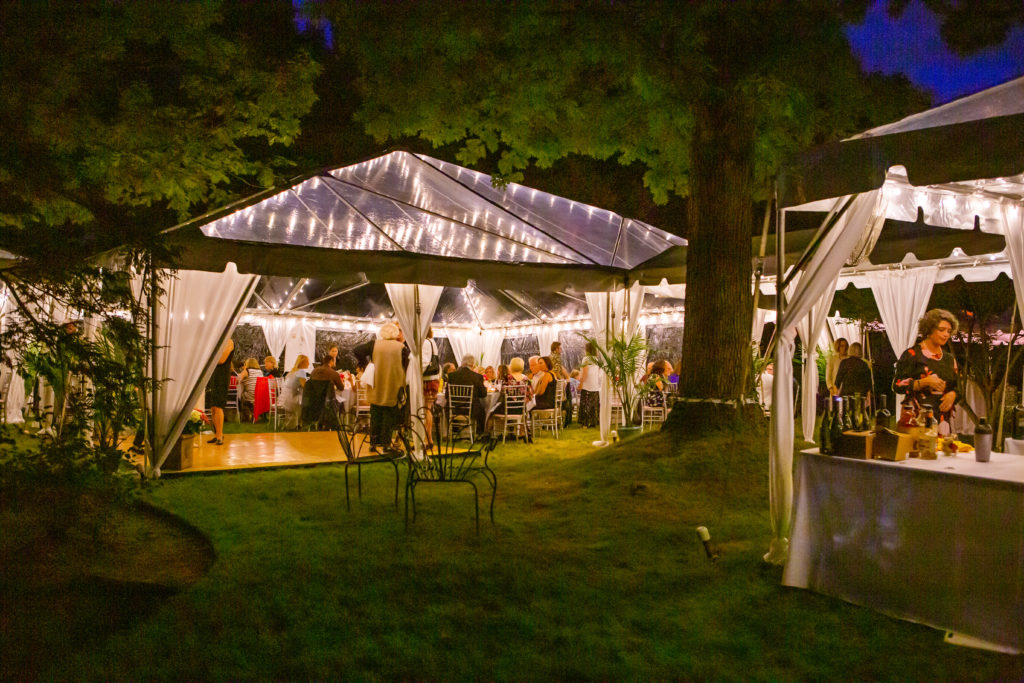
Photo by Maia Rosenfeld Photography.
Here’s something I’ve been ruminating about for rather a long time: What, exactly, is “day-of coordinating”? For some context, there are a lot of discussions in planner circles about what it is, what it isn’t, and whether or not it even exists. Let me assure you that, no matter what some planners say, it really does exist and some of us are still doing it.
I completely understand the point of view of some planners when they say that it’s not a real thing. They are saying (if they will allow me to put words in their mouths) that no one ever walks into a wedding to coordinate it without putting in a certain amount of planning time in advance. Or, maybe, some people do do that, but I can’t imagine that it ever turns out very well. The reality is that if I’m coordinating a wedding, I am doing a certain amount of the actual planning.
For the last several years, I’ve noticed that a lot of planners like to call it “month-of coordinating.” This is a nod to the fact that the coordinator is probably going to be involved in the wedding for the last four to six weeks before the wedding day (even though the actual coordinating is really only on the day! But I digress.)
And what happens in those few weeks? What does the coordinator actually do? Well, let’s say you’re planning a wedding and you have found all your own vendors (yay!) and figured out all your own decor (good job!) and you even have an idea of what the timeline of the day is (you’re ahead of the pack!)
Then you hire me to coordinate. The first thing I have to do is get all that information about your plans from you. You send me your vendor contracts, your lists of decor items, and probably a lot of other things. We also do a walk-through at your venue with your caterer, where I ask a lot of questions and listen to everything being said to get the full picture of your plans. On the outside, it may not look like I’m doing much, but in my head, I’m constructing a full picture of your wedding day and of every single thing that has to happen. I’m writing down the timeline details, and I am looking for places where problems might occur.
And that is just the beginning. After that, I talk to each and every one of your vendors to make sure that we all have the same understanding and to see what they need in order to do their jobs. Make-up artists need chairs and tables; musicians and DJs need electricity and protection from the weather; bakeries need refrigerator space; and so on. These are things that don’t sound like much, but they make a surprisingly large difference in how smoothly your wedding day goes. Other vendors also notice where there may be problems that affect their work, and we often spend some time figuring out how to prevent those problems.
So, is that just coordinating? No, it is actually planning your wedding. In fact, it’s by far the most complex part of planning your wedding. Finding vendors is easier (if much more time-consuming). Planning decor is easier. Even budgeting is easier. These nuts-and-bolts logistics are the hardest part of planning. And they are what I do when I am “just coordinating” your wedding.
So, why do I do it? Because putting together all the pieces of your vision and making it come to life are my very, very favorite parts of this job. Turning your dream into reality is a thrill that is unlike any other. I keep doing Day-of Coordinating, with all it entails–because I like it and because I know that I am helping you do something that would be much harder otherwise.
So, no matter what you hear from other planners, there is such a thing as day-of coordinating, and it’s an important service for everyone who is planning a wedding.
Sep 30, 2019 | wedding planning
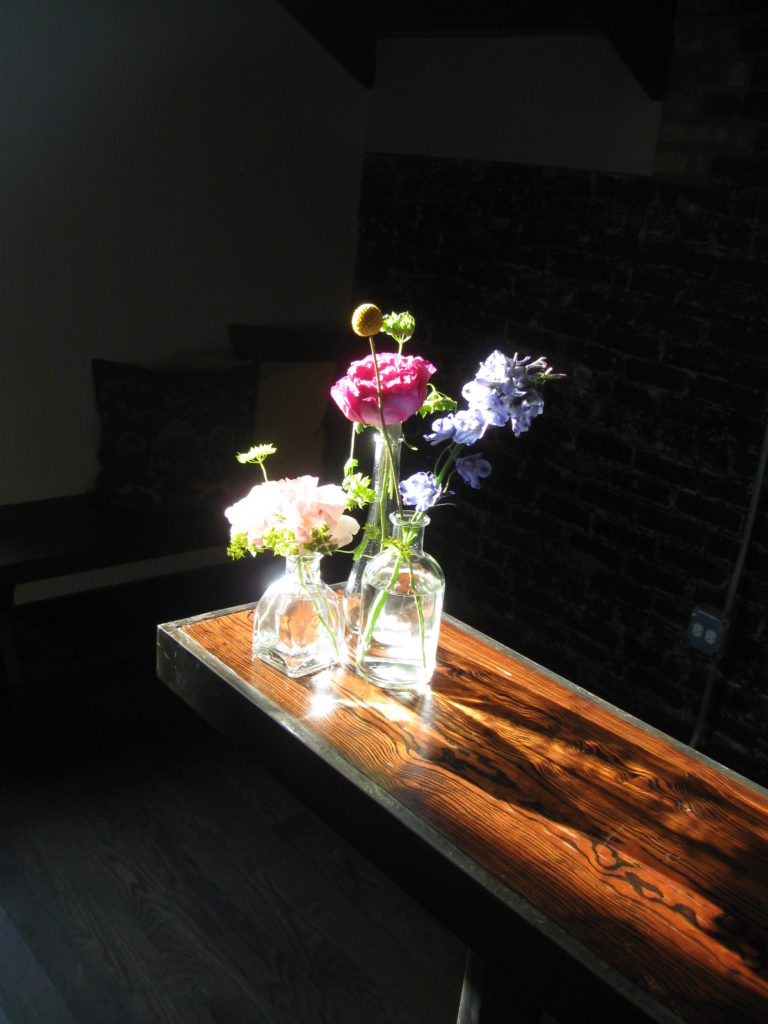
Who decides on the wedding’s color scheme? You do!!
As much as I’d like to be the superhero who can do every little thing to plan your wedding, realistically there are some very important things that I really can’t do for you. While I can help you hire vendors (make suggestions, visit them with you, discuss pros and cons, etc.) and I can pull all the details together to make sure your event runs smoothly–and I can do a lot of other things, too–there is a list of things you’re still going to have to do in the planning process. Here are a few of the things that come to mind.
The best person to figure out who should sit at each table is you and your spouse-to-be. You know your friends and family, and you can figure out who should be sitting where. Once you have made that list, I can do a lot with it. I usually take the alphabetical list and make a list by table (or reverse the process, depending on what you’ve given me). I like to have both sets of information handy on your wedding day.
Another thing only you can do is choose the music for your wedding day. Whether you are having a DJ, a band, or a Spotify account play your music for both the ceremony and the reception, you know best what your musical taste is and what you want to listen to. I can always give an opinion if I’m asked, but musical taste is very personal.
Similarly, you’re the best choice for deciding what formal photos you want (if any). I can tell you what people often do, but that’s a decision only you can make.
Photographers and DJs often have online forms to fill out that include a great many questions about your personal taste and preferences. It takes a good bit of time of fill them all out, and it’s somehow never at a convenient time, but giving them good information in plenty of time makes their jobs easier. They want to do what you want them to, so you have to tell them what you want. Your planner doesn’t know all of that!
This may be obvious, but you’re the person who signs the contracts with other vendors and pays them. I can help you keep track of which contracts you have signed and when payments are due, but these are things you take care of.
And, finally, one thing I really don’t do is made decisions about what happens during a wedding ceremony. I have opinions about just about everything else that happens on a wedding day, but your officiant is the person who knows best about what kind of wedding ceremony you will have.
Planning a wedding is a long series of small tasks. Your planner can do a lot of them (and probably more than you’ll ever know about), but if you are just getting started on your planning, remember that even if you are working with a planner, you’ll still have a lot of things to take care of. As always, if you need help, just ask. I’m always happy to help, even with the things I can’t do for you.







Recent Comments